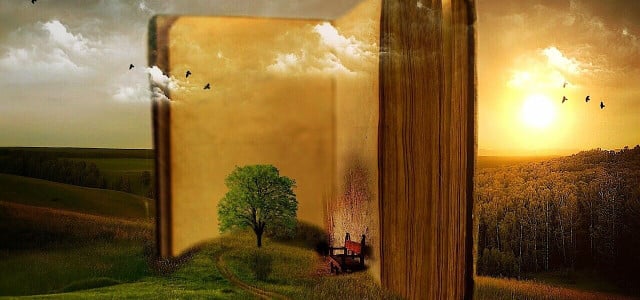Books about nature can lose us in an exploration of the world around us, but books about nature by BIPOC authors are especially exciting, as these voices have too long been suppressed. Here we offer 21 truly fascinating reads.
From sweetgrass to whales, from Native America to Vietnam, we have chosen a wide range of books about nature, to bring new ways of seeing the world around us. There are a number of truly fascinating reads by Black, Indigenous, and People of Color (BIPOC) authors, that reflect on relationships with the natural world and environmental justice. BIPOC authors have long been excluded from the Eurocentric outdoor movement and the genre of nature writing.
It is time to bridge that gap, and the below offerings are gems in terms of their honest and often personal revelations. Representation of these historical and varied voices must increase, and their stories shared. This is not just a case of protecting what we call the natural world, but to look at why we continue to prioritize some voices over others.
Books About Nature and Culture
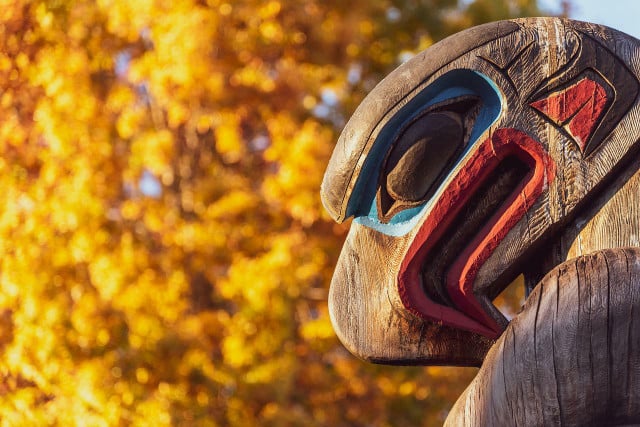
(Foto: CC0 / Pixabay / Vladvictoria)
1. Trace: Memory, History, Race, and the American Landscape. Lauret Savoy tackles humans’ emotional connection to the land, in this engaging book. Savoy draws on her experience as an educator and Earth historian to track the continent’s past from the relics of deep time. She suggests that sand and stone are Earth’s fragmented memory and that each of us, too, is a landscape inscribed by memory and loss.
2. Roots of Our Renewal: Ethnobotany and Cherokee Environmental Governance. Author and professor, Clint Carroll, tells how Cherokee people have developed material, spiritual, and political ties with the lands they have inhabited since removal from their homelands in the southeastern United States.
3. Writing the Goodlife: Mexican American Literature and the Environment. Priscilla Solis Ybarra explains that Mexican American literature brings a much-needed approach to the increasingly urgent challenges of climate change and environmental injustice. This book journeys through long-established traditions of thought that have existed in Mexican American literary history for the past century and a half and frames the shifts that have occurred in terms of environmental relations.
4. Black Faces, White Spaces. This academic book by Carolyn Finney looks at the under-representation of African Americans in ecology, nature, outdoor recreation, and environmental movements. Finney also comments on the legacies of slavery and cultural injustices. How the environment has, and is, viewed by both white and black Americans is also explored, asking who should, and can, have access to our natural spaces. This book is one of the most well known books about nature by a BIPOC author.
5. There’s Something in the Water. Ingrid Waldron writes about environmental racism through a Nova Scotian case study. This book (now also a documentary film), looks at how Indigenous and African Nova Scotian women have had to fight, and continue to do so, to protect their communities, land and futures, with ecological disasters also seriously affecting both physical and mental health
6. As Long As Grass Grows: The Indigenous Fight for Environmental Justice from Colonization to Standing Rock This environmental justice guide by Dina Gilio-Whitaker looks at what is meant by the term, and who it applies to. White supremacy has dominated the environmental justice movements, Gilio-Whtaker argues, using examples to prove how little the average American knows, and understands, about the historic tensions between Indigenous peoples and mainstream environmental justice.
7. Haunted by Waters: A Journey Through Race and Place in the American West. Robert Hayashi illustrates how Thomas Jefferson’s vision of an all-white, democratic West affected the Gem State’s Nez Perce, Chinese, Shoshone, Mormon, and Japanese residents. Whilst fly-fishing, and visiting historical sites and museums, Hayashi explores intertwined notions of race and place, using a wide range of sources, including memoirs, oral interviews, poetry, legal cases, letters, government documents, and even road signs,
Books About Nature That Tell a Personal Tale
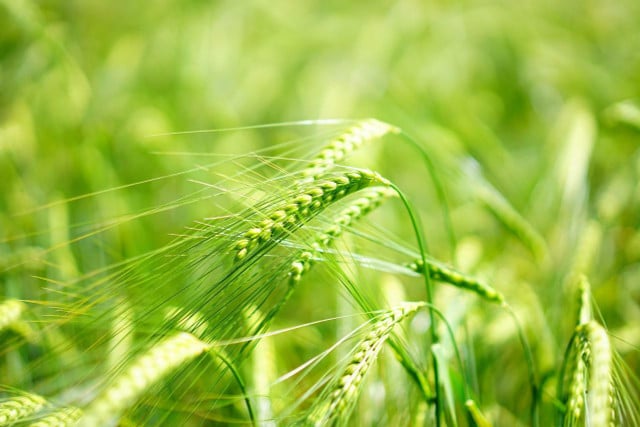


(Foto: CC0 / Pixabay / Hans)
8. Braiding Sweetgrass: Indigenous Wisdom, Scientific Knowledge and the Teachings of Plants. Botanist and professor of plant ecology, Robin Wall Kimmerer explores her connection with nature, as a Potawatomi woman. This book explores what she learned from elders, family, and history, explaining that the Potawatomi, as well as a majority of other cultures indigenous to this land, consider plants and animals to be our oldest teachers.
9. The Home Place: Memoirs of a Colored Man’s Love Affair with Nature. An unforgettable memoir by ornithologist and professor of ecology J. Drew Lanham. “In me, there is the red of miry clay, the brown of spring floods, the gold of ripening tobacco. All of these hues are me; I am, in the deepest sense, colored.” From these fertile soils of love, land, identity, family, and race emerges ‘The Home Place’.
10. Unbowed: A Memoir by Wangari Maathai. Maathai — winner of the 2004 Nobel Peace Prize and a single mother of three — recounts her extraordinary life as a political activist, feminist, and environmentalist in Kenya. As a child in a rural village in 1940, Wangari Maathai was determined to get an education even though that went against the grain.
11. Solar Storms. Linda Hogan is former CU faculty member, and is well-known for writing books about nature (you’ll find her name more than once in this list. In this book, Hogan traces one woman’s search for her birth family to a remote region of the Boundary Waters between Canada and Minnesota. A fierce battle then ensues, with developers who want to flood sacred land to build a hydroelectric dam, a battle which threatens the entire community.
12. The Unlikely Thru-Hiker. Derick Lugo’s page-turning book around his thru-hiking, touches on the experience of being a Black man in this, almost exclusively, white niche, and focuses largely on the day-to-day life of a novice hiker (the book will make you laugh) making his way 2,190 miles from Georgia to Maine.
13. The Adventure Gap. James Edward Mills details the story of his and his team’s first summit attempt of Denali. A team made up entirely of African-American climbers. The story is exciting and captivating, and also asks “What will it take to bridge this “adventure gap” that we continue to see in America’s wildest places?”
Novels and Poetic Books About Nature
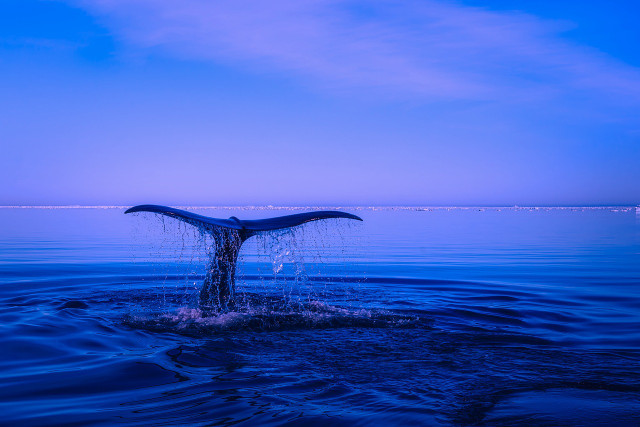


(Foto: CC0 / Pixabay / 12019)
14. People of the Whale is a novel by Linda Hogan. In this tale, a Vietnam veteran (Thomas) is torn between his war experience and his Native American community. Trying to come to terms with his experience he develops a supernatural ability to breathe underwater.
15. Black Nature: Four Centuries of African American Nature Poetry. Camille T. Dungy takes us on a journey with African American, nature-writing poets. The collection contains nearly 200 poems, reaching back to the mid-1700s, but Dungy says people rarely think of black poets as writing in a genre that brings to mind having the leisure, and time, to contemplate a field of flowers.
16. Ghost Fishing: an Eco-Justice Poetry Anthology. Edited by Melissa Tuckey, this collection focuses on poetry with an eco-justice slant. Culturally diverse and engaging, this anthology explores cultural roots and attachments.
17. Darkwater: Voices from Within the Veil. These essays, sketches and poems by W. E. B. Du Bois (a distinguished American civil rights leader) were first published individually around 100 years ago. Du Bois also discusses how and why African Americans at that time hesitated to travel to national parks as tourists.
Anthologies
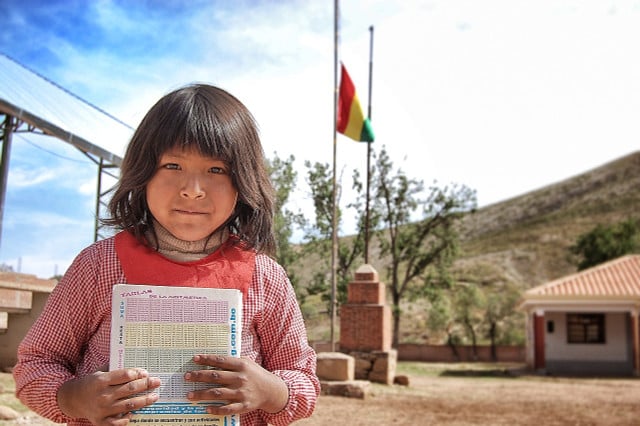


(Foto: CC0 / Pixabay / ArturoChoque)
18. The Colors of Nature: Culture, Identity, and the Natural World. This collection of works edited by by Alison Hawthorne Deming and Lauret E. Savoy explores cultural diversity through storytelling about our cultural origins, journeying through paths of destruction, displacement and hope.
19. Intimate Nature: The Bond Between Women and Animals This anthology edited by Linda Hogan, Deena Matzger Brenda Peterson includes original stories, essays, meditations, and poems by the best women nature writers and by women field scientists writing about their lives among the animals they study.
20. Inner Journey: Views from Native Traditions by Black Elk; This edited collection, drawn from 30 years of “Parabola” magazine, presents the vast scope of the Native American spiritual tradition. Well-known figures including Black Elk, Peter Matthiessen, Arthur Amiotte, Joseph Bruchac, N. Scott Momaday, and Joseph Epes discuss what it is to live in an interconnected world, and the possibilities of a life based on respect and love for our planet.
21. Home Places: Contemporary Native American Writing from Sun Tracks This anthology, edited by Larry Evers, and Ofelia Zepeda, asks what has nourished native peoples on this continent since time immemorial, and delves into the wellsprings of creativity. A lovely collection of stories, songs and poems around American Indian culture.
We hope you find some wonderful books about nature by these BIPOC authors and enjoy the fresh and fascinating perspectives they offer.
In our other best-of lists of literature, you can find even more on everything nature, climate, and society:
- 12 Best Picture Books About the Environment
- 10 Cli-Fi Books You Should Read ASAP
- Top 10 Books About Trees You Must Have Read in 2022
- Feminist Literature: 20 Essential Books You Should Read
- The 8 Best Books About Climate Change
Read more:
- What to Do With Old Books: 10 Idea
- Ecopsychology: What Is it & Can I Study it?
- How to Write a Journal and Make it a Habit: Benefits of Journal Writing
Do you like this post?






